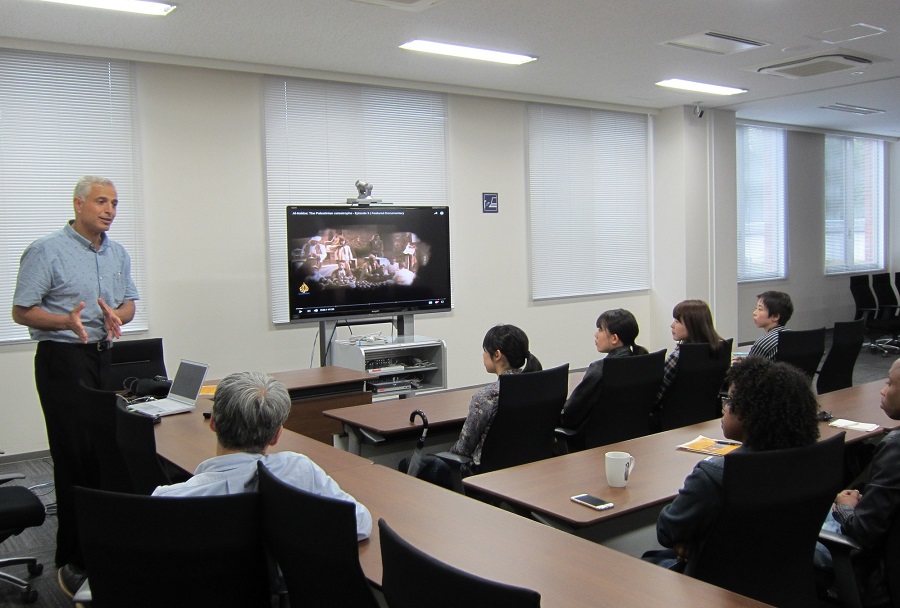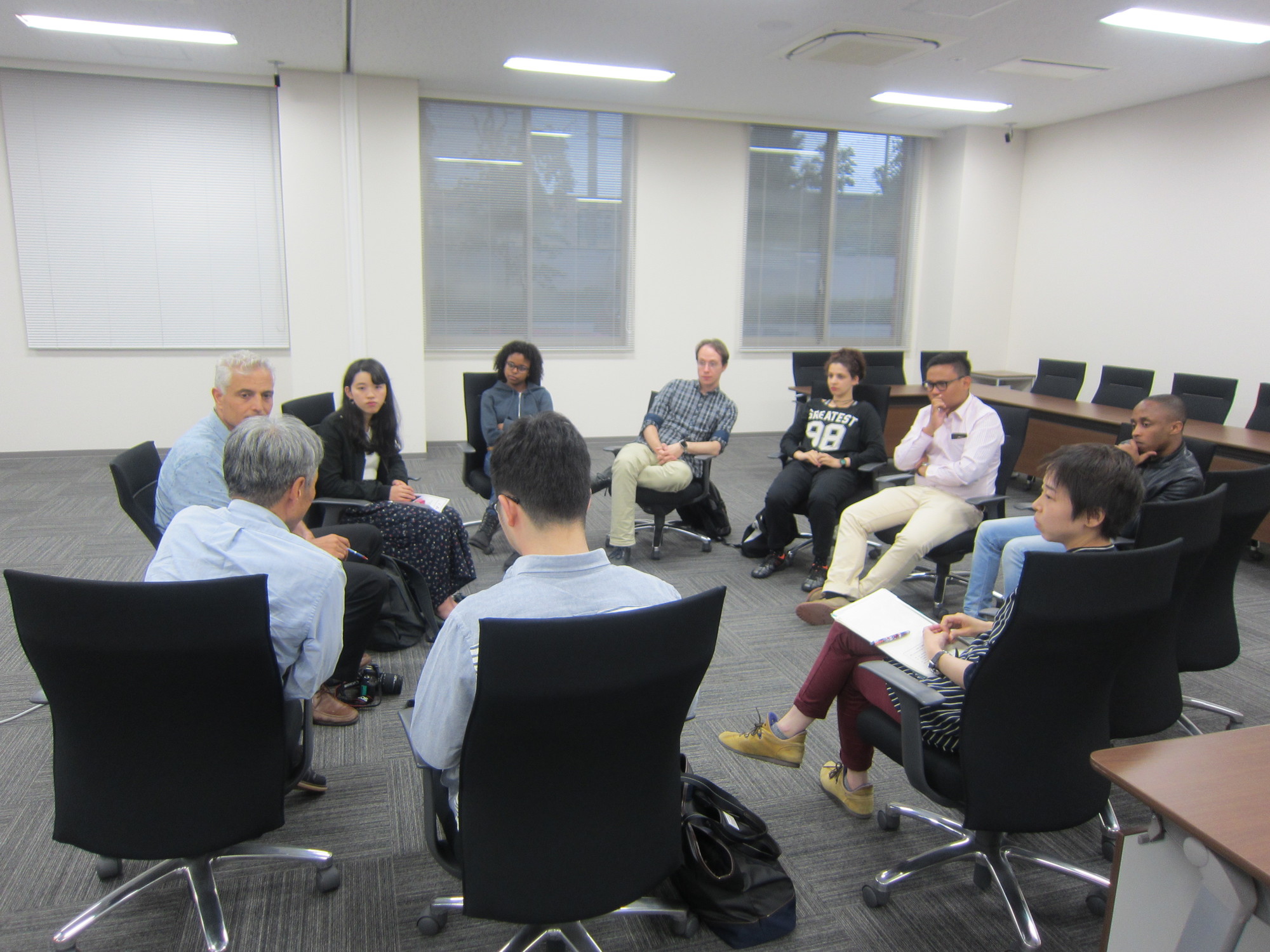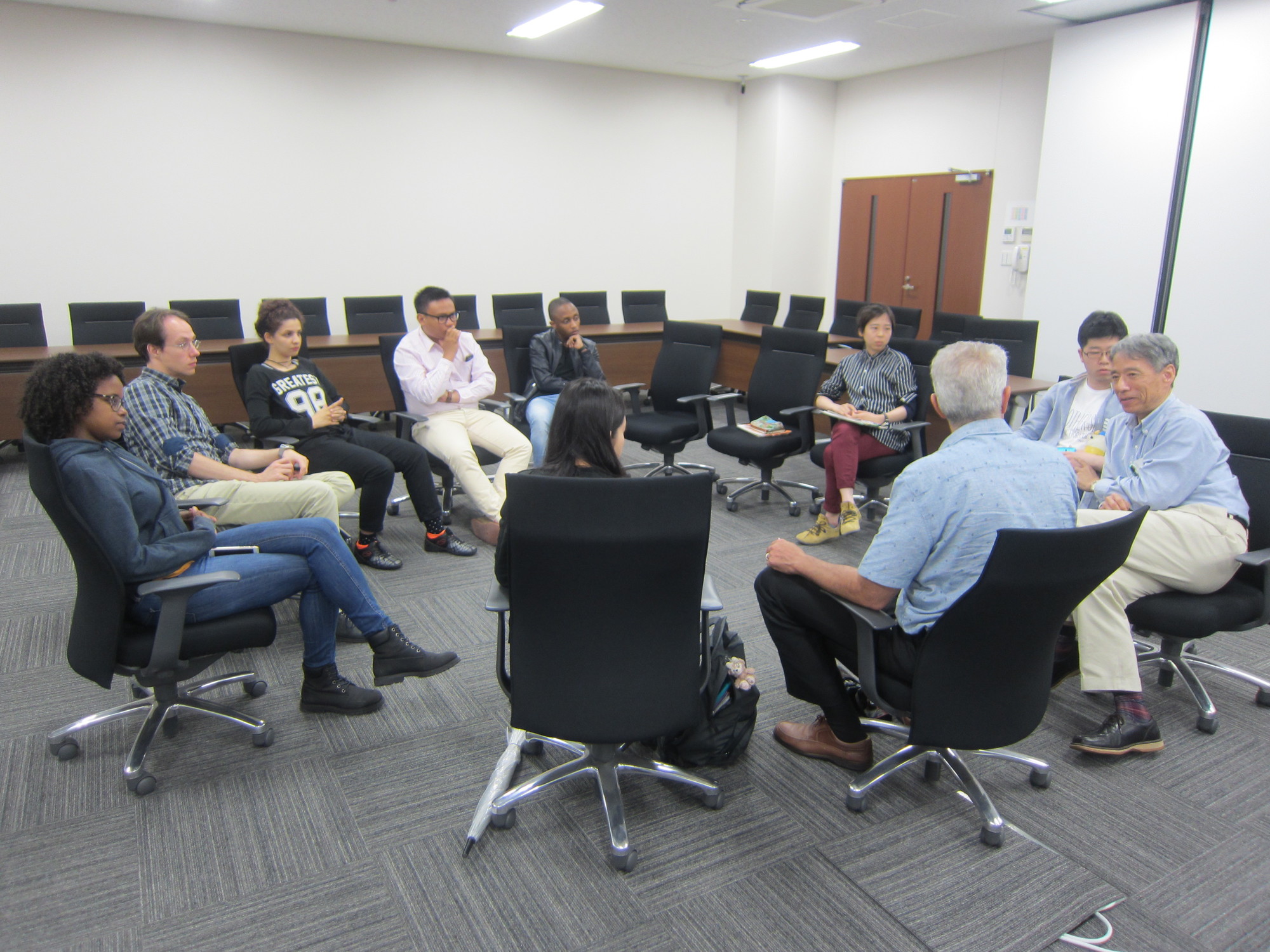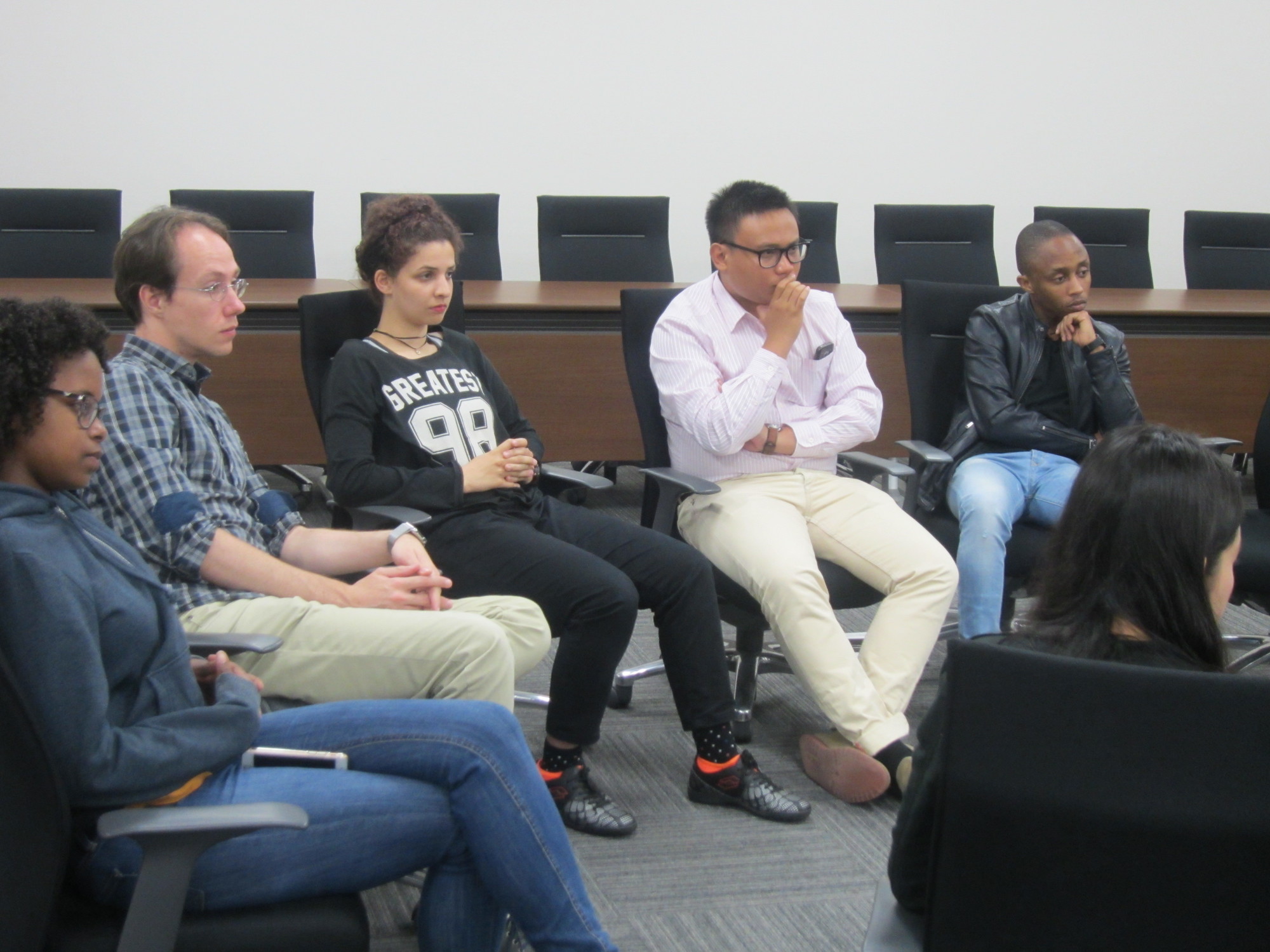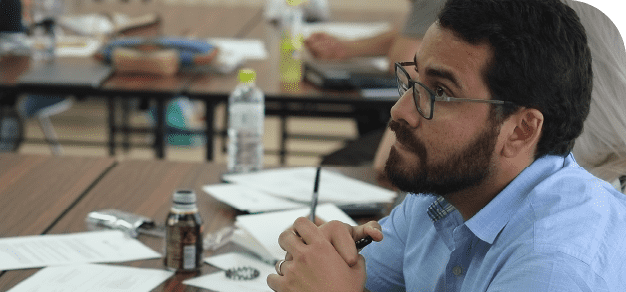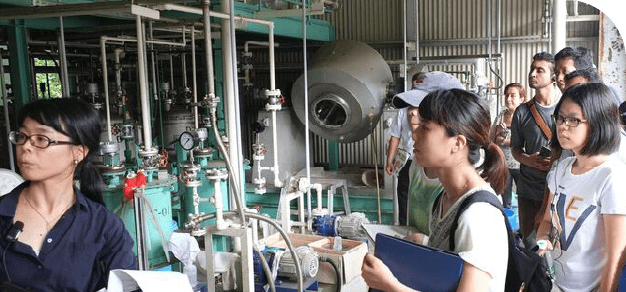Recent Activities
GRM Monthly Documentary Film Event - May
2018/06/18
A documentary film event was held on Thursday, 31 May.
We watched a film, titled
“ Al-Nakba”
----------------------------
Date: Thursday 31 May 2018
Time: 17:30 P.M. - 20:00 P.M.
Venue: Meeting Room, Shikokan Building (1F), Karasuma Campus
Doshisha University
----------------------------
Written by Iyas Salim, PhD
Advanced Research and Education, Doshisha University
This documentary film depicts the root causes of the Palestine Question and its ongoing dilemma by shedding a light on the culminating events of 1948. Exactly seventy years ago, more than 900,000 Palestinians were expelled from their land by Zionist paramilitaries and more than 400 villages and towns were destroyed. The Majority of Palestinian refugees, who currently number about 7.5 million, remain living in refugee camps in West Bank, Gaza, neighboring countries and beyond. Britain ended its mandate in early May 1948, after thirty years of colonial rule in Palestine. The state of Israel was created on 15 May 1948, marking what Palestinian call the Nakba or catastrophe. The establishment of Israel meant the expulsion of the Palestinians, the loss of lives, homes, farms, villages and towns. Hundreds of thousands of people suddenly became stateless, refugees and victims of what later became known as ethnic cleansing.
In the discussion following the film, various opinions and perspectives were exchanged as the participants came from different countries as well as individual experiences. The film represented a new perspective and new information to one South African student. Rarely history of the Palestinian dilemma is presented in main stream media. Information is often streamed out of various outlets but the historical background is more or less absent. The student of South Africa explained that Apartheid system was institutionalized in 1948 in South Africa. Historically speaking, Britain played a major part in the predicament of South Africa and colonization, reflecting on similarities between the case of South Africa and Palestine. Another participant talked about his own professional experience working in the U.N for more than thirty years. He pointed out how often one global issue or crisis, such as Rwanda, Bosnia, etc., would take a center stage at the U.N and then disappear. However, the Palestinian issue continues to occupy the center of stage at the U.N. The U.N veteran expressed his concern on how to move forward and find a way out to the crisis. The two-state solution idea was raised as the 1967 border was suggested to be the starting point for finding a peaceful settlement of the question.
A Palestinian student from the town of Bethlehem in the West Bank responded to this particular point by describing the latest situation in her town of Bethlehem and the larger territory of the West Bank, occupied since 1967. She talked about her home in Bethlehem and how she would see an Israeli settlement, called Jabal Abu Ghneim Settlement, from her window of her house. Life is dangerous around that area because settlers often shoot and fire at civilians in the neighborhood, she explained. There are more than half a million Israeli settlers in the West Bank with separate network of roads for settlers only and about 500 military check points throughout the West Bank. Palestinians in the West Bank must go through strict military check points each time they leave their village, town or city. The Palestinian student stressed such situation would make it impossible for a Palestinian state to emerge.
Moreover, the Palestinians, all along, have insisted that the conflict is not about religion. It is a situation of loss of land, continued oppression, illegal military occupation, abuse of human rights and absence of freedom. Historically speaking, Palestine has been a place of peaceful coexistence among Muslims, Christians and Jews. The situation at the moment is not attainable and at the same time unsustainable. The two-million population of the Gaza Strip lives under a severe siege where half the population is between the age of 15-29 years old. Gaza area is called the largest “open-air prison” in the world. Recent protests by the youth of Gaza have been taking place every week since March 30th of this year along the barbed-wire fence set up by Israel on the eastern edge of Gaza.
The question of Palestine remains unresolved. Moving the U.S embassy to Jerusalem has added fuel to fire, aggravating the situation to the worse. More than 71 young Palestinian kids were killed while the embassy opening ceremony was happening. The youth of Palestine and the people in general aim for a better future, an inclusive future, that can guarantee dignity, freedom and return of refugees.
Date: Thursday 31 May 2018
Time: 17:30 P.M. - 20:00 P.M.
Venue: Meeting Room, Shikokan Building (1F), Karasuma Campus
Doshisha University
----------------------------
Written by Iyas Salim, PhD
Advanced Research and Education, Doshisha University
This documentary film depicts the root causes of the Palestine Question and its ongoing dilemma by shedding a light on the culminating events of 1948. Exactly seventy years ago, more than 900,000 Palestinians were expelled from their land by Zionist paramilitaries and more than 400 villages and towns were destroyed. The Majority of Palestinian refugees, who currently number about 7.5 million, remain living in refugee camps in West Bank, Gaza, neighboring countries and beyond. Britain ended its mandate in early May 1948, after thirty years of colonial rule in Palestine. The state of Israel was created on 15 May 1948, marking what Palestinian call the Nakba or catastrophe. The establishment of Israel meant the expulsion of the Palestinians, the loss of lives, homes, farms, villages and towns. Hundreds of thousands of people suddenly became stateless, refugees and victims of what later became known as ethnic cleansing.
In the discussion following the film, various opinions and perspectives were exchanged as the participants came from different countries as well as individual experiences. The film represented a new perspective and new information to one South African student. Rarely history of the Palestinian dilemma is presented in main stream media. Information is often streamed out of various outlets but the historical background is more or less absent. The student of South Africa explained that Apartheid system was institutionalized in 1948 in South Africa. Historically speaking, Britain played a major part in the predicament of South Africa and colonization, reflecting on similarities between the case of South Africa and Palestine. Another participant talked about his own professional experience working in the U.N for more than thirty years. He pointed out how often one global issue or crisis, such as Rwanda, Bosnia, etc., would take a center stage at the U.N and then disappear. However, the Palestinian issue continues to occupy the center of stage at the U.N. The U.N veteran expressed his concern on how to move forward and find a way out to the crisis. The two-state solution idea was raised as the 1967 border was suggested to be the starting point for finding a peaceful settlement of the question.
A Palestinian student from the town of Bethlehem in the West Bank responded to this particular point by describing the latest situation in her town of Bethlehem and the larger territory of the West Bank, occupied since 1967. She talked about her home in Bethlehem and how she would see an Israeli settlement, called Jabal Abu Ghneim Settlement, from her window of her house. Life is dangerous around that area because settlers often shoot and fire at civilians in the neighborhood, she explained. There are more than half a million Israeli settlers in the West Bank with separate network of roads for settlers only and about 500 military check points throughout the West Bank. Palestinians in the West Bank must go through strict military check points each time they leave their village, town or city. The Palestinian student stressed such situation would make it impossible for a Palestinian state to emerge.
Moreover, the Palestinians, all along, have insisted that the conflict is not about religion. It is a situation of loss of land, continued oppression, illegal military occupation, abuse of human rights and absence of freedom. Historically speaking, Palestine has been a place of peaceful coexistence among Muslims, Christians and Jews. The situation at the moment is not attainable and at the same time unsustainable. The two-million population of the Gaza Strip lives under a severe siege where half the population is between the age of 15-29 years old. Gaza area is called the largest “open-air prison” in the world. Recent protests by the youth of Gaza have been taking place every week since March 30th of this year along the barbed-wire fence set up by Israel on the eastern edge of Gaza.
The question of Palestine remains unresolved. Moving the U.S embassy to Jerusalem has added fuel to fire, aggravating the situation to the worse. More than 71 young Palestinian kids were killed while the embassy opening ceremony was happening. The youth of Palestine and the people in general aim for a better future, an inclusive future, that can guarantee dignity, freedom and return of refugees.
Research & Others
